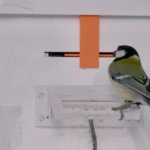New Genetic Insights into Childhood Leukemia Relapse Risk
Recent research has unveiled previously unknown genetic factors that affect the likelihood of relapse in pediatric patients suffering from standard risk B-cell acute lymphoblastic leukemia (SR B-ALL), recognized as the prevalent form of cancer in children.
This groundbreaking discovery holds promise for tailoring treatment protocols to better manage and potentially reduce relapse rates. The implications of these findings could lead to more targeted therapies, enhancing survival outcomes for affected young patients.
In the context of SR B-ALL, understanding these genetic variations is crucial as they might pave the way for personalized medicine approaches. By identifying at-risk individuals more accurately, clinicians could adapt their treatment strategies accordingly.
The Importance of Personalized Medicine
The importance of customizing treatment plans cannot be overstated in the context of pediatric cancers. Currently, statistics indicate that around 90% of children with SR B-ALL achieve remission; however, a significant proportion may experience a relapse during or after treatment. This highlights an urgent need for innovative strategies informed by genetic research.
Moreover, with advances in genomic studies and technologies becoming ever more accessible, integrating this information into clinical practice is increasingly feasible. As researchers continue to map out these genetic variations associated with relapse risk, healthcare professionals can develop interventions aimed at mitigating those risks effectively.
these new insights into genetic factors influencing SR B-ALL provide a critical avenue for improving patient care and outcomes. Continued exploration in this field will undoubtedly contribute to advancements in pediatric oncology and enhance life expectancy and quality for young cancer survivors.





